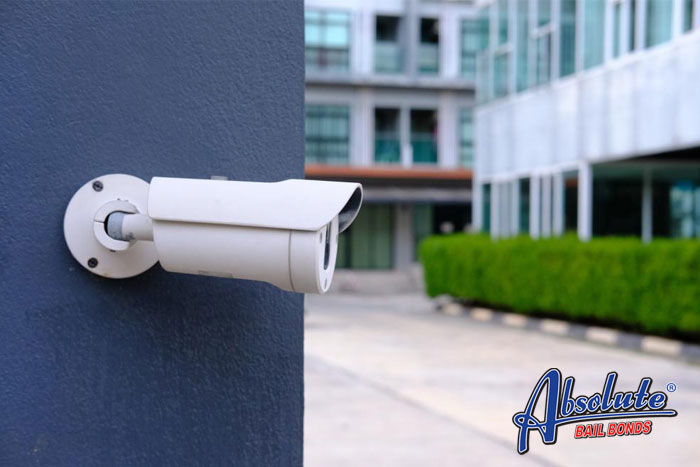
How to Handle a Public Intoxication Charge
Most people assume that as long as they don’t drive after they’ve been drinking, they have nothing to worry about. What they don’t realize is that in California, you can be charged with public intoxication.
While it’s perfectly okay to drink in California, while you’re in public, you’re not allowed to drink to a massive excess. In California, there are two ways your drinking could result in your being charged with public intoxication.
The first is that you can’t be so drunk, you become a danger to yourself and to others. This means that if you leave the bar with the intention of walking home, but are so drunk you’re walking into traffic, picking fights, are doing something that makes the police think you’re endangering either yourself or others, you can be arrested. Its even possible that if you pass out on your walk home and are found by the police that in addition to taking you to the hospital for an exam, they will also charge you with public intoxication.
The other thing you can do that will prompt the police to arrets you for public intoxication is obstructing public ways. If your in the middle of sidewalk, public entrance, or road and people are unable to get around you, you’ll be taken to jail.
In California, public intoxication is a misdemeanor offense. While this isn’t as serious as being accused of a felony, if you’re convicted, you will have a criminal record. It is something employers and anyone else who runs a criminal background check on you will discover. While you can plead guilty to the charges right away, in the long run, it’s usually in your best interest to consult with an attorney who will look at the details surrounding your case and help you decide what the best and least life altering course is.
If you’re convicted of public intoxication in California, the maximum sentence you receive is six months in a county jail and/or a $1,000 fine. It’s common for individuals who are convicted of public intoxication in California to be ordered to take on community service and to pay a fine. In some situations, mandatory substance abuse awareness classes are part of the sentence.

The Best Way to Smoothly Get Through a Traffic Stop
Traffic stops are always a nerve-wracking experience, especially if you’re not sure why the cop is signaling for you to pull over. The good news is that there are some things you can do to make the entire process go more smoothly.
Don’t Try to Run
Many of us have a strange urge to try to run and evade the police, even when we know we haven’t done anything massively wrong. You need to ignore the urge. Not only will you put yourself in a position where you could cause an accident, but you will also get an even heftier ticket and possibly be charged with a misdemeanor. It’s in your best interest to take a deep breath and resign yourself to the fact that you’re getting pulled over.
Stay Calm
Getting upset isn’t going to help the situation but staying calm will. The calmer you are as the officer approaches your car, the smoother the traffic stop will go. Not only will you find it easier to understand what the officer is asking you when you’re calm, but you’re also less likely to do or say something that will irritate the officer. Calm drivers are far more likely to be let off with a warning than drivers who are upset and belligerent.
Find a Safe Place to Pull Over
Yes, you want to pull over shortly after the police signal you to stop, but you have the right to do so in a safe place. If possible, pull over into a parking lot or look for a place with a wide shoulder.
Don’t Argue With the Officer
If the officer writes a ticket, but you don’t think you’ve done anything wrong, don’t start arguing with the officer. It’s unlikely that the argument will do anything but make the situation worse. If you don’t think the ticket is fair, accept it when the officer hands it to you. Once you’re home, you can arrange to argue your case in front of a judge.
Don’t Over Share
When it comes to talking to the officer, you want to speak as little as possible. Yes, you want to be polite. Yes, you should answer their questions honestly. What you don’t want to do is inadvertently say something that could get you into more trouble. If you have passengers, they should remain quiet unless the officer asks them a direct question.
If you follow these tips, the next time you’re pulled over should be a smooth process.

5 Things You Should Know About Your Rights
At Absolute Bail Bonds, we serve to protect the rights of those who have been arrested, whether that person is truly guilty of the crime or not. That’s why we offer an unmatched bail bond service. We are the most reliable, affordable, and helpful bail bonds in California.
If you are arrested, it is first and foremost important that you know your own rights:
- You have the right to remain silent
- You have the right to legal counsel
- You have the right to know the charges against you
- You have the right to be presumed innocent until proven guilty
- You have the right to non-excessive bail
Absolute Bail Bonds will help you protect these rights by helping you bail out of jail. It is not right to hold you in jail until court (you haven’t been formally found guilty yet!) and it is not right to “force” you to stay in jail because you cannot afford your expensive bail. This is where Absolute Bail Bonds can help you. To make an appointment, please call us immediately at 1-800-793-2245.

The Right to Remain Silent
We’re all familiar with the Miranda Rights, which basically grants us the ability to not tell the police anything if we’re arrested. While we’ve heard thousands of television cops recite the famous words “you have the right to remain silent” few of us actually know what that means.
The History of the Miranda Rights
The Miranda Rights take their name from Ernesto Arturo Miranda. He was arrested in 1963 and placed in a line-up. The victim selected Miranda. When the police questioned him, he confessed to the crime. It looked like an open and shut case, when in fact, it turned into a case that forever changed police procedure in the United States.
After Miranda was found guilty of raping and kidnapping, his attorney argued that the case should have been thrown out because Miranda was never told that he had the “right to remain silent.” Instead of ignoring the claims, the case, along with three similar cases, made it to the Supreme Court. In 1966, the Supreme Court ruled that in situations like the one Miranda found himself in, the police can’t use a confession unless the accused has first been advised of their right to remain silent and reminded that if they confess, the confession can be used against them during the court case.
What the Right to Remain Silent Really Means
The right to remain silent doesn’t mean that the police can’t question you. The right to remain silent is designed to provide you with a layer of protection in two different circumstances.
If you are in court and under oath, the right to remain silent means you aren’t legally required to say something that could incriminate you in criminal activity. If you do say something, the prosecution can use the confession, even an inadvertent one, against you. In this type of situation, the right to remain silent is commonly referred to as Taking the Fifth.
The second situation where the right to remain silent comes into play is if you’re being deposed by the police. They’re allowed to question you, but you don’t have to say anything that could be considered a confession to a crime.
When do the Miranda Rights Come into Play?
The police are supposed to read you your Miranda Rights as soon as they make a move to take you into custody. Being taken into custody means that you don’t have the ability to leave when you decide that you’ve had enough. You’re right to remain silent kicks in as soon as the police put handcuffs on you, which is why it’s important to remain cool, calm, and collected while they drive you to the police station. You don’t want to lose your temper while you are in the back of the car that could be used against you.

What to do When the Police Ask for Camera Footage
Over the past 10 or 15 years, cameras have become a major part of our daily lives. They’re on our phones, in our homes, built into doorbells, and even mounted on the dashboards of our cars. We usually don’t give them a second thought until the police request the footage. That’s when we suddenly start to wonder exactly what our rights are.
Can the Police Request Camera Footage Without a Warrant?
If you’re wondering if the police can ask to see the footage one of your cameras has captured even when they don’t have a warrant, the answer is yes. Where things get murkier is when you’re trying to figure out if you have to grant their request.
Do You Have to Hand Your Cameras to the Police?
If the police suspect that the camera on your phone, dashboard, or home security system contains information that pertains to a crime they’re investigating, they are allowed to take it, even if you don’t willingly hand it over. They are required to provide you with a receipt. What the police aren’t allowed to do is simply flip through the phone or watch any of the videos without permission. There are two ways they can obtain this permission. The first is if you tell them that you don’t mind. The second is by getting a warrant to inspect the camera.
The problem with camera footage is that if the police find incriminating evidence, they can use it against you.
RING Doorbells and the Police
If you have a RING doorbell, you should know that it’s possible the police may already have access to the footage the camera has captured. The brand is actively marketed to the police and some police stations have even been given the doorbells which they hand out to citizens. Amazon, who owns the company that manufactures RING doorbell does this because they are trying to cut down on delivery package thefts. It’s a good idea unless the police suspect you of a crime. Footage that is less than 60 days old and has been uploaded to a network cloud can easily fall into the police’s hands, even without your permission or a warrant.
Tony Botti, who is a Public Information Officer with the Fresno County Sheriff’s office spoke about this issue. “If we ask within 60 days of the recording and as long as it’s been uploaded to the cloud, then Ring can take it out of the cloud and send it to us legally so that we can use it as part of our investigation,” Tony said. “The consumer knows what they’re getting into. If you’re a good upstanding person who is doing things lawfully, nobody has concerns.”

